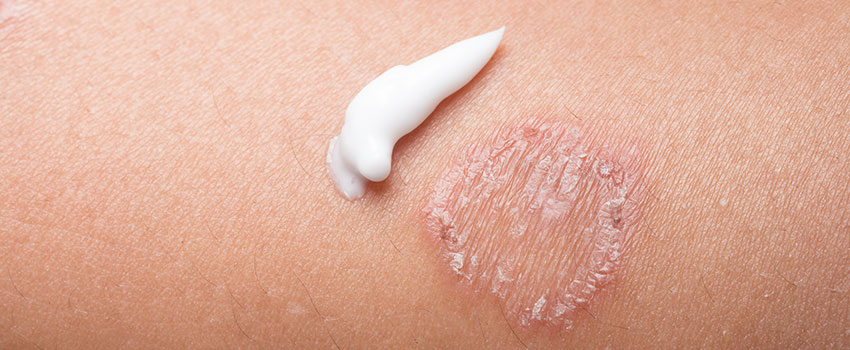
Ringworm is no fun, to say the least. Getting this type of rash is uncomfortable, but thankfully, it’s highly treatable and actually quite common.
To learn more about this type of skin infection, read what our AFC Urgent Care Sevierville team has to say below!
What Is Ringworm?
Ringworm is a rash caused by a fungal infection. It’s usually an itchy, circular rash with clearer skin in the middle. Ringworm gets its name because of its appearance—not because of the presence of an actual worm, thankfully.
Ringworm most often spreads by direct skin-to-skin contact with an infected person or animal. We’ve listed its most common symptoms below.
Common Signs and Symptoms of Ringworm
- A scaly ring-shaped area, typically on the buttocks, trunk, arms and legs
- Itchiness
- A clear or scaly area inside the ring, perhaps with a scattering of bumps whose color ranges from red, brown to gray
- Slightly raised, expanding rings
- A round, flat patch of itchy skin
- Overlapping rings
If I Get Ringworm, How Can I Treat It?
Most cases of ringworm can be effectively treated at home. The most effective and common way to treat a ringworm rash is by applying OTC topical antifungals to the rash to kill the fungus and promote healing. Effective medications include miconazole (Cruex), clotrimazole (Desenex) and terbinafine (Lamisil).
Before applying medication, wash the rash first. After you’ve washed it, apply a thin layer of whichever antifungal medication you have chosen to the affected area two to three times per day, or as directed by the package.
Additional Ways to Treat Ringworm
- Let it breathe. Bandaging the rash locks in moisture and slows the healing process. Instead, wear comfortable, breathable clothes to speed healing and avoid spreading the rash to other people.
- Wash bedding daily. Because ringworm is highly contagious, you should wash your sheets daily to get rid of the infection faster. Fungal spores can transfer to your sheets and comforter, which could then spread to other parts of your body and cause the rash to take longer to heal.
- Change wet underwear and socks. If ringworm develops on your feet or groin area, keep these areas dry. If you sweat a lot during the day, bathe with an anti-fungal cleansing bar and then reapply your anti-fungal powder or lotion.
Have further questions or non-emergency medical concerns? If so, don’t hesitate to reach out to or visit our AFC Urgent Care Sevierville team today.


